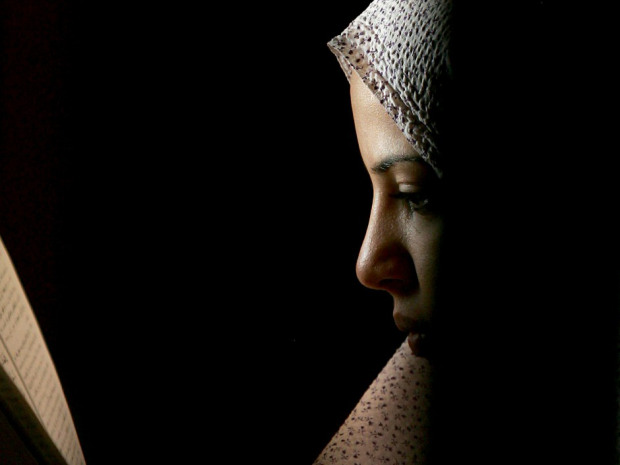Jerusalem Online journalist , Rachel Avraham, has written a new book titled “Women and Jihad: Debating Palestinian Female Suicide Bombings in the American, Israeli and Arab Media,” which exposes how the Palestinian educational system and media play a pivotal role in encouraging young Palestinians to become terrorists.
The book can be acquired on Amazon at https://www.amazon.com/Women-Jihad-Debating-Palestinian-Bombings-ebook/dp/B01M3X66ZE/ref=sr_1_1?ie=UTF8&qid=1478522701&sr=8-1&keywords=Women+and+Jihad
Ayat Al Akhras, age 18, blew herself up at the entrance to the Supersal Supermarket in the Kiryat Hayovel neighborhood in Jerusalem right before Shabbat started on March 29, 2002 during the heights of the Second Intifada. According to a recently published book by Rachel Avraham titled Women and Jihad: Debating Palestinian Female Suicide Bombings in the American, Israeli and Arab Media, the great influence of the Al Aqsa Martyrs Brigades in the neighborhood where Ayat Al Akhras grew up in that led to threats against her father due to his work for an Israeli company is what led her to blow herself up.
“Mere months before her suicide bombing, members of the Al Akhras Martyrs Brigade visited the Al Akhras home and demanded that Muhammed quit his job,” Avraham wrote. “Al Akhras adamantly refused to comply with their demands. The results would be devastating for the Al Akhras family. Neighbors who were once close began to shun the family and graffiti accusing the Al Akhras family of collaborating with Israel defaced their home on more than one occasion. The family could no longer buy things in the local market because sellers refuse to give them service and a child of one of Ayat’s sisters was even beat up in school. Her father’s unwavering stance profoundly embarrassed Ayat.”
“When a neighbor, who was a leader in the Al Aqsa Martyrs Brigades terror organization, witnessed his brother being eliminated by Israel, Ayat became motivated to engage in something drastic,” Avraham continued. “By that time, the situation had deteriorated to the point where neighbors blocked the Al Akhras house to prevent Mohammed from going to work and there was talk of lynching her father in the camp, as well as destroying the Al Akhras home.” These developments led Ayat Al Akhras to believe that her family was disgraced within her society, thus prompting her to be willing to do whatever it takes to redeem her family’s reputation.
A general atmosphere that encourages Palestinian female terrorism has been in place since the suicide bombing of Wafa Idris during the Second Intifada. After Wafa Idris blew herself up, she was glorified throughout Palestinian society. Articles by women within the Palestinian media appeared within days of her suicide bombing, demonstrating the determination of Palestinian women to partake in terror attacks. The Palestinian terror groups, who saw that women could more easily penetrate the Israeli security system and were more likely to receive positive publicity in the Western press, saw women as a strategic advantage. This general atmosphere that encouraged Palestinian female suicide terrorism is what led to the suicide bombing of Ayat Al Akhras for in the environment of the Dehaishe Refugee Camp, the only way the relative of a suspected collaborator could be redeemed in the eyes of the community was by becoming a suicide bomber.
Since Al Akhras blew herself up, young Palestinian children have been raised to idolize her as an example that they should follow. In 2012, in honor of International Women’s Day, teachers in Qalqilya offered chocolates to the student who was able to identify the picture of the suicide bomber Ayat Al Akhras, who killed 2 including the 17-year-old high school student Rachel Levy and injured 28. Her picture was featured prominently on a local school’s Facebook page. In addition, the Artas School for Girls near Bethlehem has her picture engraved on the school’s wall as well. Fatah has glorified her as a “bride of Palestine” and a PA summer camp for girls has been named after her.
This kind of education that praises Palestinian female terrorists both within the Palestinian educational system and in Arabic language media is what influenced other Palestinian children, teenagers and young adults to become terrorists. As Avraham noted in her book, Andaleeb Suleiman, age 20, was a simple girl and a seamstress for a profession that ended up becoming the fourth Palestinian female suicide bomber, murdering 6 people and wounding 60 others, merely because of the indoctrination that she received on Arabic language television once she became unemployed. Hiba Daraghmeh, age 19, became the fifth Palestinian female suicide bomber after being active in the Islamic bloc at her university, where she “helped stage exhibits of political posters and cartoons and sold cassettes of songs calling for jihad.” Zeinab Abu Salem, age 18, became the eighth Palestinian female suicide bomber after working for three months at a broadcast company. While working there, she contacted members of the Al Aqsa Martyrs Brigade, telling them that she wanted to volunteer for a suicide bombing mission and if she was refused, she would attack an IDF post with a knife.
More recently, during the Knife Intifada, Ishaq Badran, a teenage terrorist who stabbed and wounded 2 Israelis, apparently was motivated to wage his terror attack due to the existence of a video of “a woman who was stripped of her hair scarf before she was killed.” The video was of Shoruq Dwayat, a Palestinian female terrorist who stabbed a Jew. In recent times, Palestinian media and social media has been raising awareness about young women joining violent demonstrations and even waging terror attacks. The female terrorists of the Knife Intifada have been glorified throughout Palestinian society. This alongside the continued glorification of Second Intifada era terrorists has played a direct influence in educating the next generation of young Palestinians to wage violent attacks against Israelis. Until the Palestinian Authority starts educating for peace, the present wave of violence will continue.









